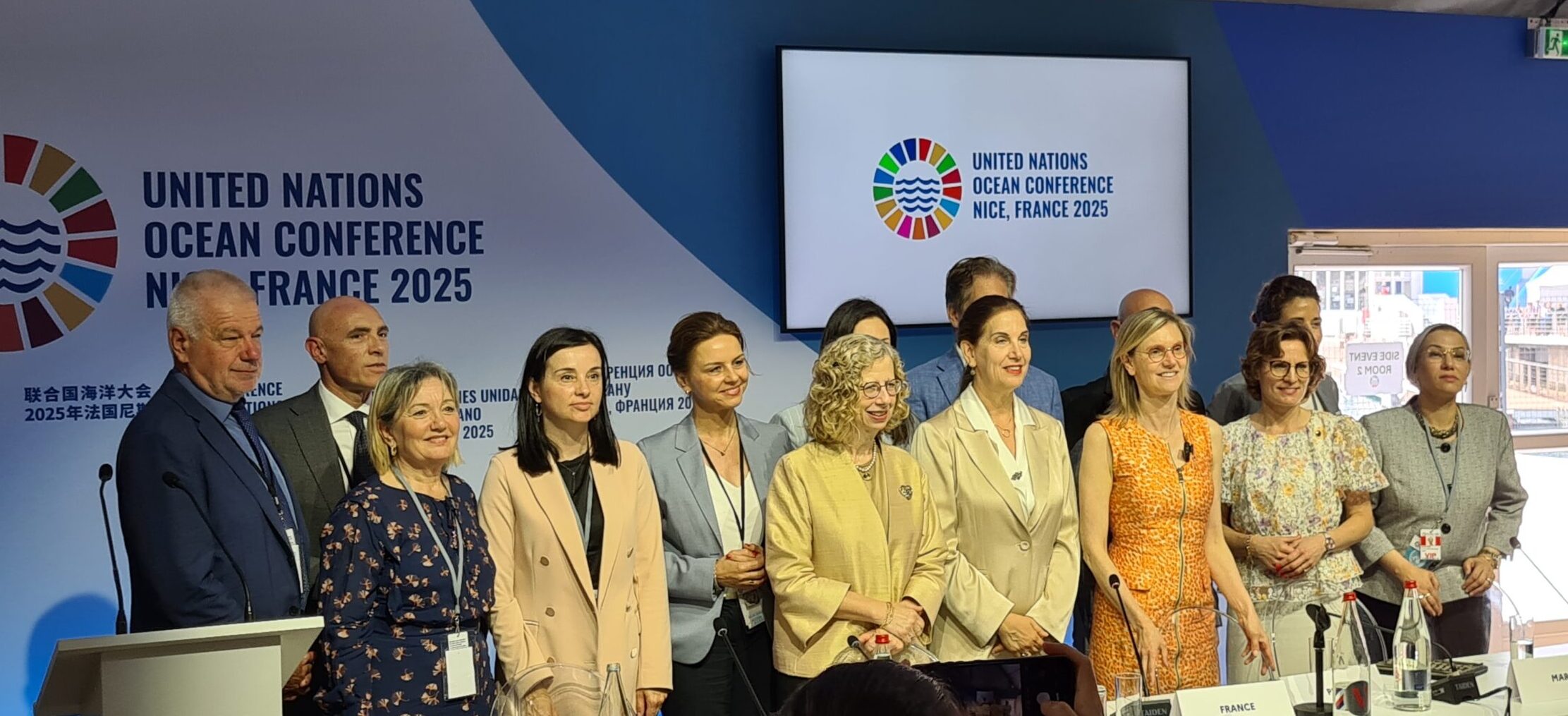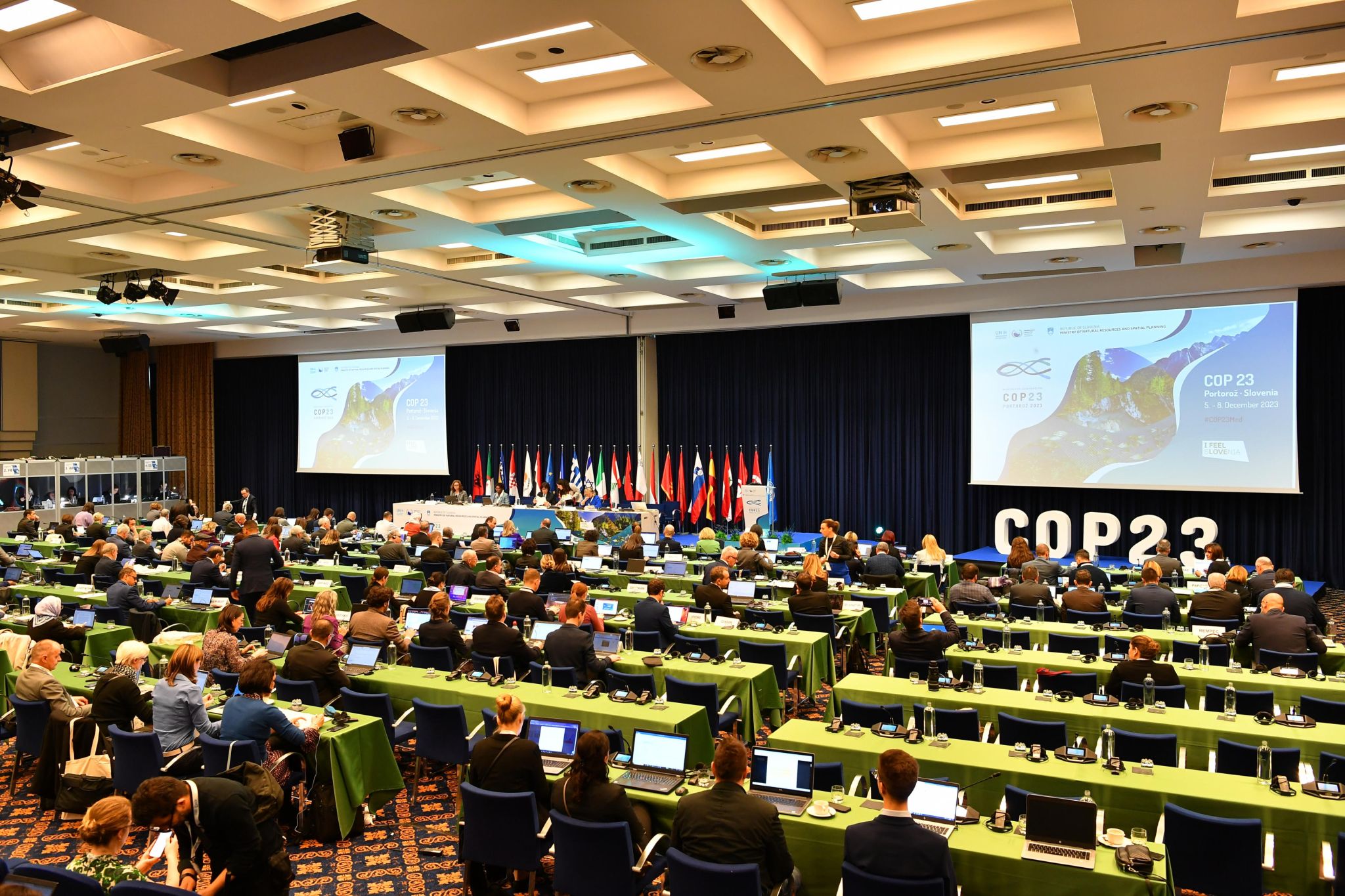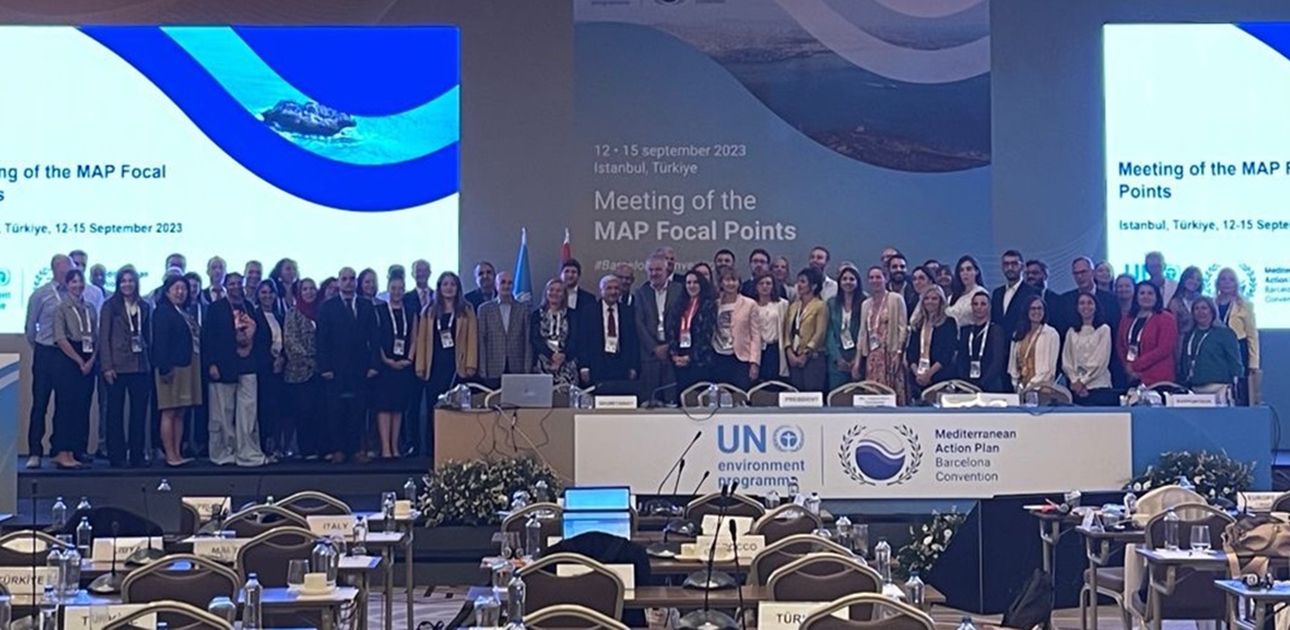
What 50 years of UNEP/MAP has made possible for a more sustainable Mediterranean
As the Barcelona Convention turns 50, the occasion isn’t just ceremonial; it reaffirms the vital, ongoing role of UNEP/MAP in driving environmental action in the Mediterranean through a highly challenging time of transformation and pressure.
For Tatjana Hema, Coordinator of UNEP/MAP, the anniversary evokes a deep sense of pride. “What this process has achieved is nothing short of pioneering,” she says. From launching Integrated Coastal Zone Management protocol to establishing regional institutions now mirrored globally, UNEP/MAP has long been at the forefront of sustainable coastal and marine development – sometimes quietly, but always steadily progressing.
Established in 1975, UNEP/MAP led the creation of the Barcelona Convention – the legal framework uniting 21 Mediterranean countries and the EU to protect the region’s marine and coastal environment. Through its 7 Protocols, the Convention promotes the sustainable use of resources and provides the foundation for coordinated action towards a healthy and resilient Mediterranean in the long term.
Far from being a time for self-congratulation, the 50th anniversary of the Barcelona Convention serves as a call to action for the future. “We’re not perfect,” Tatjana Hema admits. “There’s still so much to do. Implementation is lagging, and breaking the silos – across ministries, sectors, and even institutions – remains a real challenge.” Yet the vitality of the system, Hema insists, lies in its ability to evolve, to listen, and to collaborate.

Mediterranean Day at UNOC-3 – Celebrating 50 years of UNEP/MAP and the Barcelona Convention

23rd Meeting (COP 23) of the Contracting Parties to the Barcelona Convention – Slovenia, 2023
And that vitality is visible. In the last 50 years, UNEP/ MAP – through its coordination office and 8 Regional Activity Centers – have achieved, among many more successes:
- the establishment of 39 Specially Protected Areas of Mediterranean Importance (SPAMIs),
- the development of 10 national Integrated Coastal Zone Management (ICZM) strategies and coastal plans,
- the creation of the first legally binding framework for a regional plan on marine litter management.
The organization also supported the protection of many species, including the endemic Mediterranean monk seal. These are not abstract achievements: they are real advances which have direct beneficial impacts on Mediterranean communities and ecosystems.
One of the most notable tools created by UNEP/MAP is its compliance mechanism. “Originally stemming from a single, vague paragraph in the Convention,” Hema recalls, “it stands today as a key instrument for both accountability and support”. The Barcelona Convention Compliance Committee embodies the strong commitment of its 22 Contracting Parties to ensure the implementation of and adherence to the Convention and its Protocols. “Our compliance mechanism isn’t about punishment,” she explains. “It’s about helping countries meet their commitments”.
Still, Hema is conscious about the scale of the task ahead. “The Mediterranean is facing overlapping pressures – climate change, tourism, pollution, biodiversity loss – but the institutional landscape remains fragmented.” She agrees a major effort should be undertaken to better connect environmental priorities and economic agendas. “We need better dialogue, particularly with the private sector. Not just awareness, but real engagement. The sea can’t be saved without economic players at the table.”
That dialogue, in her view, must include local voices. “Real change happens locally,” she insists. UNEP/MAP is now working more directly with municipalities, youth, women, and coastal communities, aiming to bring the sustainability conversation closer to home. “These people don’t just need to be consulted. They need to lead.”
There is a sense of hope in her words – not naïve, but grounded in the conviction that institutions matter, and that solidarity still has meaning. “In a region that’s seen conflict, UNEP/MAP has survived thanks to the will to work together,” she reflects. “That’s not a given. That’s a choice we make – again and again.”

UNEP/MAP Focal Points Meeting, September 2023
Looking ahead, Hema doesn’t hesitate. “We need UNEP/MAP more than ever. For the next 50 years – and beyond!”
UNEP/MAP (United Nations Environment Programme / Mediterranean Action Plan) operates through a coordinated system of 9 components based across different offices and countries in the Mediterranean.
These include the Coordinating Unit and 8 Regional Activity Centres (RACs), each with a specialized focus:
